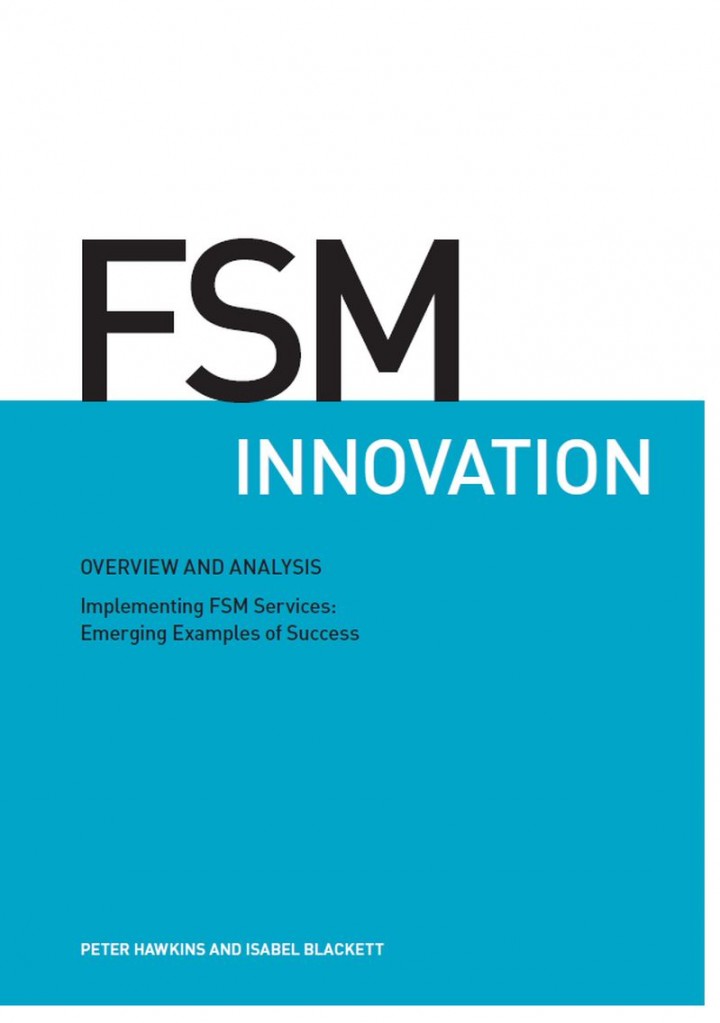
Author(s): Blackett, I. and Hawkins, P.
Published in: 2017
Pages: 159
Publisher: Bill & Melinda Gates Foundation, Seattle, USA, ISBN 978-1-5136-2513-3
FSM Innovation Case Studies Case Studies on the Business, Policy and Technology of Faecal Sludge Management (second edition)
Worldwide, 2.7 billion people rely on onsite sanitation and more than 4.5 billion people do not have access to safely managed sanitation services. Yet, in many places there is still no management system in place to deal with the faecal sludge (e.g. septage and pit latrine sludge) from such systems. This results in the faecal waste often being dumped directly into the immediate residential surrounding areas, neighbourhood or downstream environment, with significant health and environmental implications. Creating faecal sludge management (FSM) public services and infrastructure that work for everyone, to keep faecal sludge out of the environment and protect public health, is a new major challenge for achieving universal sanitation access as acknowledged by the Sustainable Development Goals adopted by the United Nations at its General Assembly of September 25, 2015.
To address this challenge, a global platform for FSM discussion and learning was created in 2011 by leading global sector organizations. The aim was to share experiences, brainstorm potential solutions and formulate evidence-based policy recommendations that promote appropriate practices. At the same time, the plan was to identify and disseminate lessons learned on how to make FSM an integral part of urban sanitation service delivery â in cities and towns both with and without sewerage systems. International FSM conferences have played a key part in this global platform and have grown in size and reach.
Most recently, FSM4 was held in Chennai, India in 2017 and attracted over 1000 participants. Previous conferences were held in Hanoi (2015) and in Durban (2011 and 2012). The conferences bring together professionals working in the sector, including utilities, service providers, cities, governments, academics, scientists, consultants, donors and industries, to support the global initiative of disseminating sustainable solutions for FSM. FSM5 will be held in Africa in the third week of February 2019.
The opening chapter provides a critical analysis of the experiences
of developing FSM programmes at scale from more
than 20 cities. It summarized the lessons learned
and important âdoâs and donâtsâ for policymakers,
managers, experts, donors or service providers who
are in the process of developing or funding improved
FSM services.
The examples in the second edition are from:
⢠Africa: Mozambique (Maputo), Kenya (national),
Senegal (Dakar), South Africa (eThekwini), Uganda
(Kampala), Zambia (Lusaka)
⢠Asia: Bangladesh (Dhaka, Faridpur and Shakhipur),
India (Warangal), Indonesia (Balikpapan, Bekasi,
Malang and Tabanan), Malaysia (national, Penang
Island and Kota Bharu), and Philippines (Dumaguete
and Manila).
With contributions from Safaris Ahmad, Nick Alcock,
Najib Bateganya, Noémie de La Brosse, John Busingye,
Jude Byansi, Srivanas Chary, Becaye Sidy Diop,
Alexandrea Dubois, Teddy Gounden, Sophia Hibler,
Asri Indiyani, Maraita Listyasari, Adriano Madamuge,
Aldy Mardikanto, Orlando Matendjua, Doreen Mbalo,
Mbaye Mbéguéré, Zito Mugabe, Odete Muximpua,
Dorai Narayana, Suman Kanti Nath, Allan Nkurunziza,
Simon Okoth, Björn Pietruschka, Malini Reddy,
Rosie Renouf, Reini Siregar, Dave Robbins, Janka Rokob,
Aubrey Simwambi, Julia Stricker and Jusper Ronoh
There are 14 files for download, because not everyone will want to read the full document of 150+ pages. The separate files enables people to easily access a specific FSM country case study and the overall analysis and summary, without downloading everything. Also because each case study is authoured by different people, it means everyone has a publication in their name.
The first file below is the complete document.
Download below:
1. FSM Innovation: Case Studies on the Business, Policy and Technology of Faecal Sludge Management â full document, authors: Blackett, I. and Hawkins, P.
2. Overview and Analysis: Implementing FSM Services: Emerging Examples of Success, Peter Hawkins and Isabel Blackett
3. Tackling the Second-Generation Sanitation Challenge at Scale: Business Solutions for Inclusive Faecal Sludge Management in Bangladesh, Noémie de La Brosse, Rosie Renouf, Suman Kanti Nath
4. Towards a Model Sanitation City: Operationalizing FSM Regulations in Warangal, V. S. Chary, Y. M. Reddy, S. Ahmad
5. Moving Towards Improved Urban Septage Management at Scale in Indonesia, A. K. Mardikanto, A. Indiyani, M. Listyasari, R. Siregar
6. Scaling up Faecal Sludge Management in Kenyaâs Urban Areas, S. O. Okoth, J. K. Ronoh, A. Dubois, D. Mbalo
7. Sanitation and Sewerage Management: The Malaysian Experience, Dorai Narayana
8. Emerging Lessons on FSM from Maputo, Mozambique, O. Muximpua, P. Hawkins, J. Stricker, Z. Mugabe, O. Matendjua, A. Madamuge
9. City-Wide Fecal Sludge Management Programs in the Philippines, Robbins, D.
10. Dakar: Organising the Faecal Sludge Market, Becaye Sidy Diop and Mbaye Mbéguéré
11. Sustainable FSM Services through Integrated Use of Resources and Innovative Technologies: A Case Study of the eThekwini Municipality (Durban) South Africa, T. Gounden and N. Alcock
12. Leveraging FSM to Close the Urban Sanitation Loop in Kampala, G. Nkurunziza, Dr. N. L. Bateganya, J. Z. Byansi, J. Rokob, J. Busingye
13. Approaches to Faecal Sludge Management in Peri-Urban Areas: A Case Study in the City of Lusaka, Simwambi, A., Hibler, S., Pietruschka, B., Hawkins, P.
14. FSM4 Case Studies (1st Edition), various authors
Keywords


